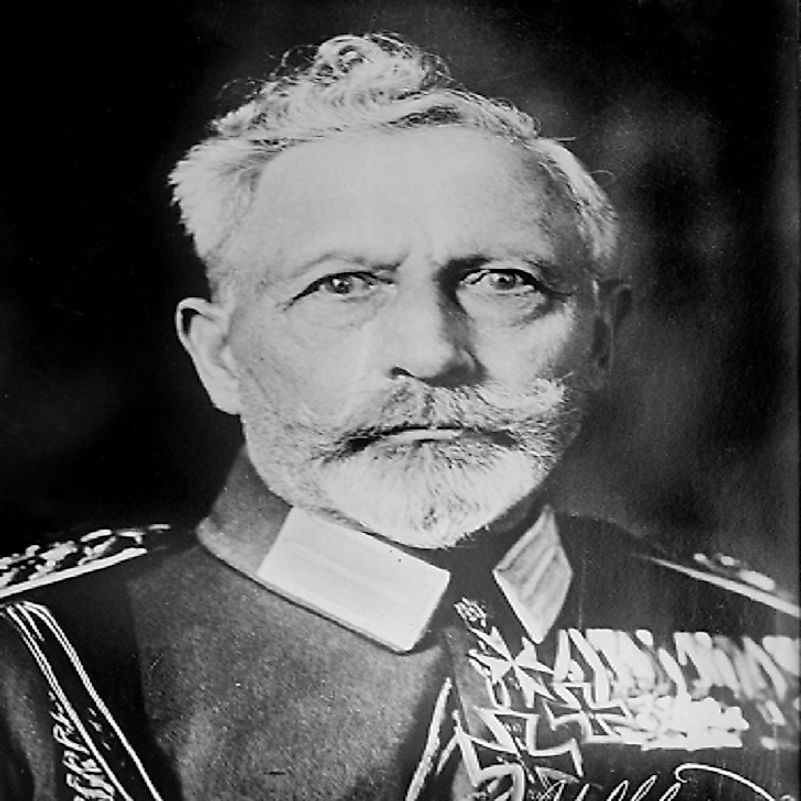Wilhelm II of Germany - World Leaders in History

5. Early Life
Wilhelm II was directly related to Queen Victoria, as were his first cousins, the respective monarchs of Great Britain and Russia, and Victoria sent her personal physicians to ensure his successful delivery to her daughter in Berlin, Princess Victoria, in 1859. On his paternal side, Wilhelm II was the son of Prince Frederick III, who was known to his family and friends as Fritz, and would become King of Prussia and then Emperor of a united German Empire. Like many aspects of his life to come, his birth went terribly wrong nonetheless, leaving him with a withered and paralyzed left arm. This arm caused the future monarch a continued feeling of humiliation all of his days, which may have accounted for his unstable personality, histrionic outbreaks, and a desire to achieve military greatness. The latter took no concrete form, save for a personal collection of over 600 military uniforms, many of which he designed himself.
4. Rise to Power
Under his grandfather, Kaiser Wilhelm I, ruling alongside his brilliant “Iron Chancellor” Otto von Bismarck, Germany became unified, and a system of alliances designed and managed by the Chancellor had maintained peace and good relations across Europe. This was necessary because the recently unified Germany in the middle of Europe bordering many nations was brilliantly situated for trade, though extremely vulnerable to attack on various fronts in the case of war. In 1888, the "Year of Three German Emperors", Wilhelm I died at the age of 90 in March, followed shortly thereafter by his son and Wilhelm II's father, Frederick III, who died of cancer in June. Having gained the throne himself that same year, the new Kaiser (or King) Wilhelm II was eager to prove himself competent and make an impression rather than be tutored in the art of managing foreign relations. Bismarck was fired, and his system of complex alliances, with their give-and-take features encouraging moderation, were deliberately broken. Kaiser Wilhelm II failed to renew a treaty of friendship with Russia, which drove the Czar to seek alliances with the traditional opponents of German expansionism, Great Britain and France, with momentous consequences.
3. Contributions
As Kaiser, Wilhelm II built a huge and expensive Navy to challenge Great Britain’s maritime dominance. Instead of the brilliant diplomacy of Bismarck, which kept lines of communication open with even the most bitter of the nation's opponents, Germany now had France on one side seeking to regain territory it had lost in a war with Prussia in 1871. Meanwhile, Russia, feeling betrayed, sought and found a means to threaten Germany on two sides by forming an alliance with France. Germany responded with the Schlieffen Plan, which called for the rapid elimination of the weaker opponent Russia before facing France. This invasion ultimately put World War I into full military swing.
2. Challenges
During World War I, the Army leadership was taking more prominent positions in society that in the end pushed aside the Kaiser's authority. As a consequence of William II’s clumsy handling of diplomacy, a system of alliances was formed to oppose the German quest for “a place in the sun”, which was their Empire. Germany had on its side Austria-Hungary, the remnant of the once powerful Hapsburg Empire, itself possessing a weak army and sullen, rebellious peoples seeking national liberation. William II had no great sensitivity in this area of political relationship, himself being deeply anti-Semitic, thoughtlessly offensive in insulting the British people as a race (even ding so in an interview while on a good-will visit to Britain), and calling the Chinese “cross-eyed” after the Boxer Rebellion. The policy of seeking Germany's “place in the sun” in this manner led to ruin, and for Willhelm II the loss of his throne as Germany was defeated in World War I.
1. Death and Legacy
With Germany's defeat, Wilhelm II was forced to abdicate on November 9th, 1918. His abdication was actually announced before he had consented to it. He escaped to the Netherlands, bought a manor house there, and suffered deep depression after the death of his wife and suicide of his son two years later. His initial admiration for Adolf Hitler was not reciprocated, and he was never allowed to return to Germany. He died in exile in a manor house named Huis Doorn in Doorn, a small town in the Netherlands, in 1941 at the age of 82. As the Netherlands was then being occupied by Nazi German invaders, he was given an unheralded military funeral there by German military personnel that had been born in the homeland he had governed for three decades as emperor.







